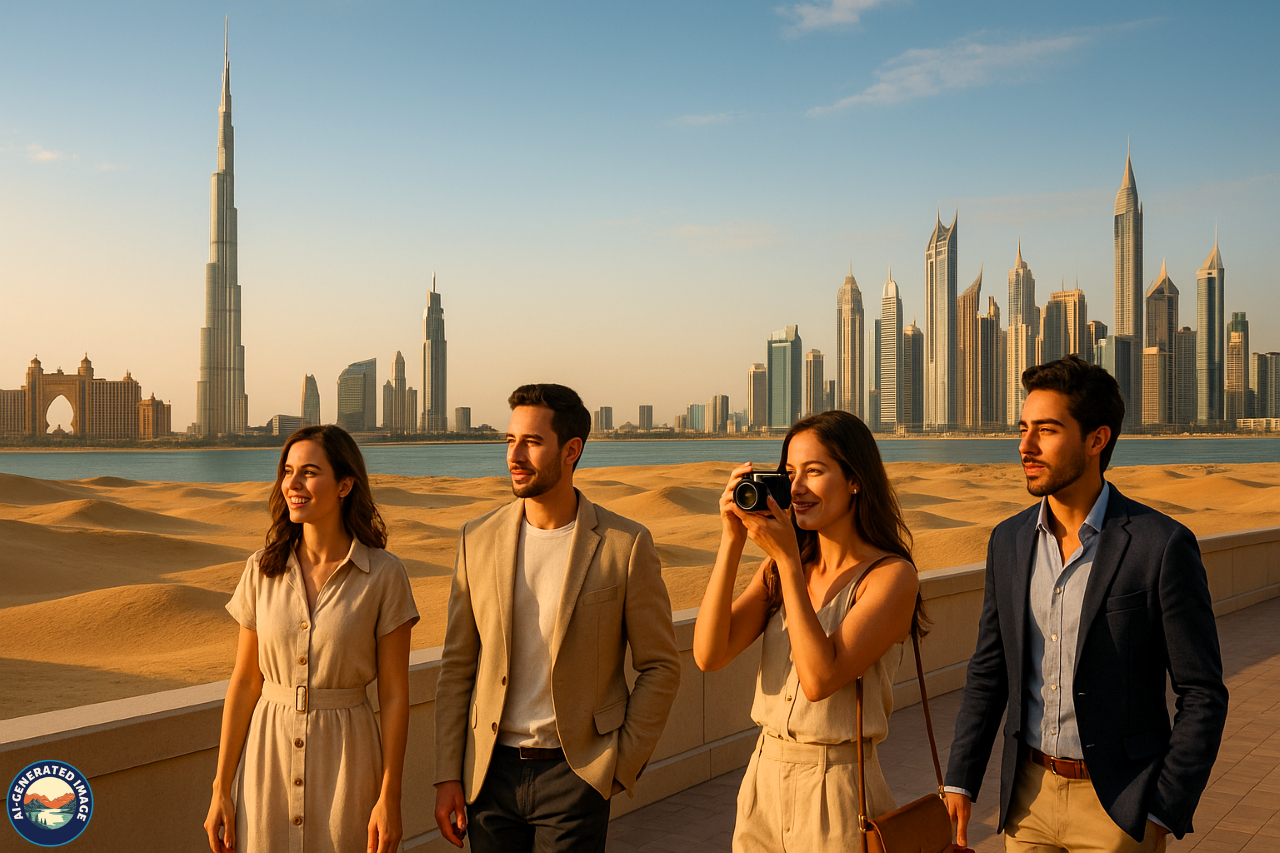Introduction
The United Arab Emirates (UAE) is a shining example of how a country can preserve its deep-rooted cultural traditions while embracing modernity. From its towering skyscrapers to its vast desert landscapes, the UAE offers an intriguing mix of the ancient and the futuristic. In this article, we will delve into the UAE’s rich history, vibrant culture, remarkable landmarks, economic prosperity, and its influential position on the world stage. Whether you’re a traveler, business professional, or simply curious about the UAE, this comprehensive guide provides an in-depth exploration of the country.
Understanding the United Arab Emirates
Geographical Overview
Nestled in the southeastern part of the Arabian Peninsula, the United Arab Emirates is bordered by Saudi Arabia to the south and Oman to the southeast. Its diverse geography features expansive deserts, mountain ranges, and a significant coastline along the Persian Gulf. The UAE’s strategic location has made it a vital center for trade and cultural exchange between the East and West.
The UAE is a federation of seven emirates: Abu Dhabi, Dubai, Sharjah, Ajman, Fujairah, Ras Al Khaimah, and Umm Al-Quwain. While each emirate has its ruler, they operate under a unified federal government.
Historical Background and Formation
The UAE came into existence on December 2, 1971, when six emirates—Abu Dhabi, Dubai, Sharjah, Ajman, Umm Al-Quwain, and Fujairah—came together to form a single nation. Shortly after, Ras Al Khaimah joined the federation. Before their unification, these emirates were under British protection, with the United Kingdom overseeing foreign policy and defense matters until its withdrawal in the late 1960s.
The unification of the emirates was primarily driven by the vision of Sheikh Zayed bin Sultan Al Nahyan, the first president of the UAE, who sought to create a united country founded on principles of peace, prosperity, and progress.
Political Framework
The UAE operates under a federal system, but it is also an absolute monarchy. Each emirate is governed by its monarch, and the president and prime minister of the UAE are selected from the rulers of these emirates. Abu Dhabi typically holds the presidency, and Dubai’s ruler usually serves as the prime minister. Although political parties do not exist, decisions are made by the rulers of the emirates, with consultation from the Federal National Council (FNC).
The UAE government has implemented several reforms in recent years, including expanding political participation, increasing women’s representation, and enhancing governance transparency.
Key Emirates of the UAE
Abu Dhabi
As the largest and capital emirate of the UAE, Abu Dhabi is the political and economic heart of the nation. Located along the Persian Gulf, it is home to numerous cultural and historical landmarks that reflect both its rich heritage and modern splendor.

Key attractions in Abu Dhabi include:
-
Sheikh Zayed Grand Mosque:
-
A stunning architectural marvel, the mosque is one of the largest in the world, known for its elegant marble structure, vast courtyards, and stunning interiors.
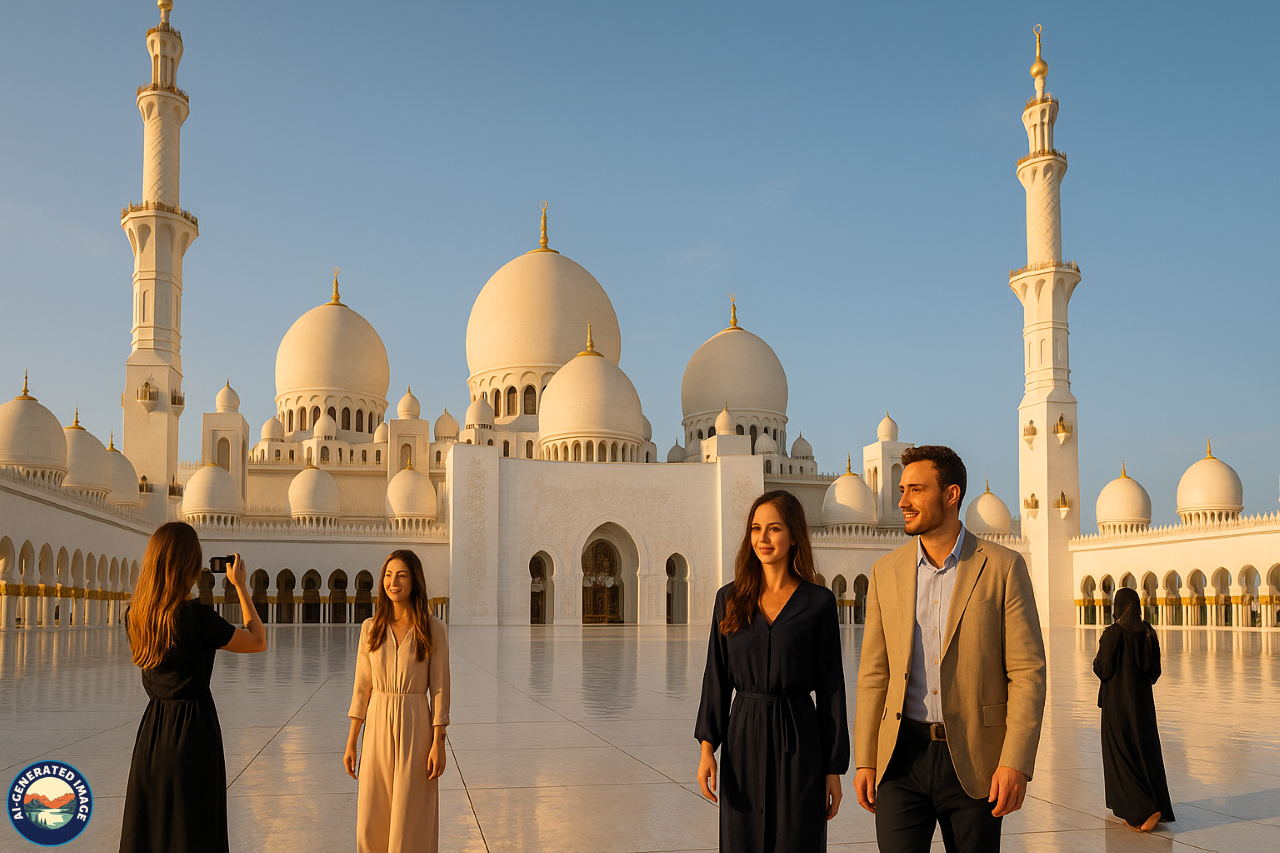
-
Emirates Palace:
-
This luxurious hotel epitomizes the opulence of the emirate, with its grand façade and lavish interiors.
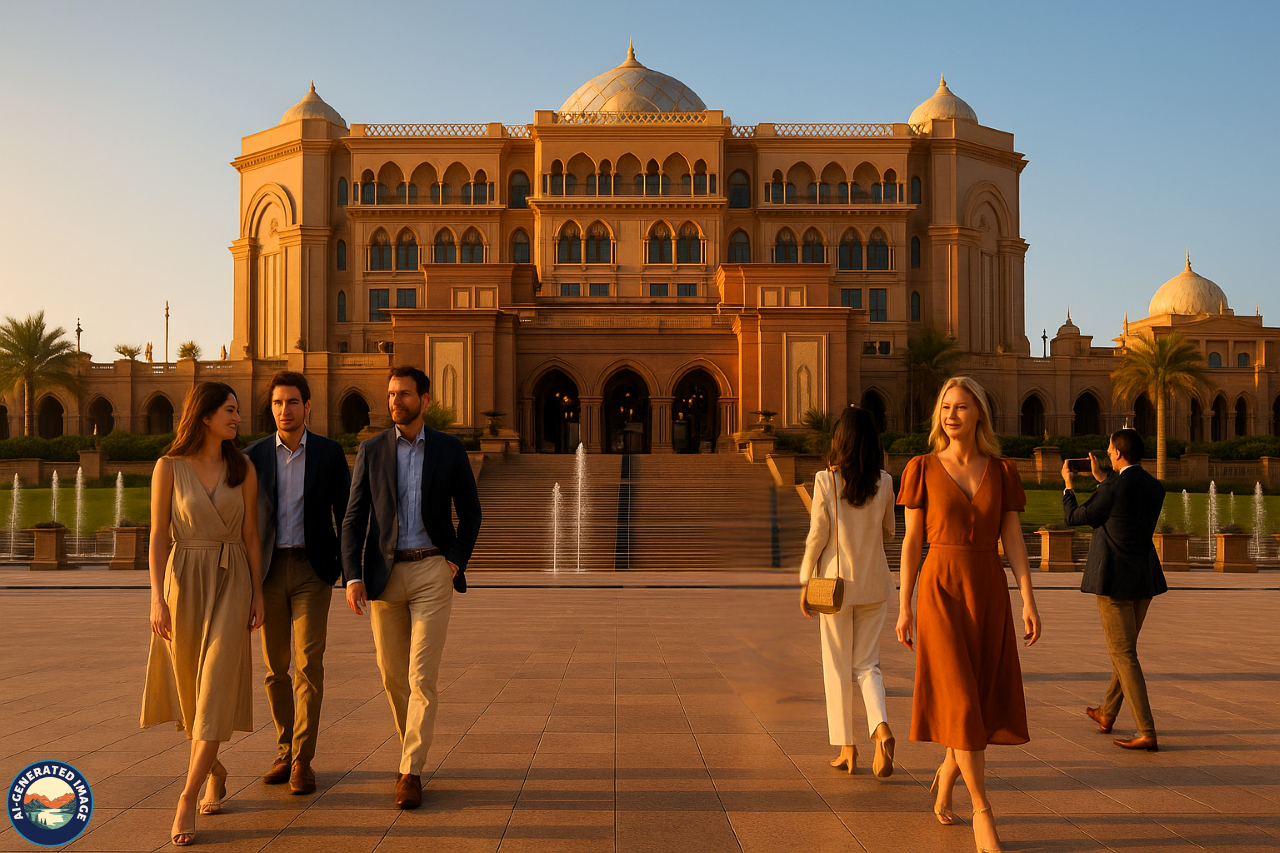
Abu Dhabi’s economy is largely driven by oil, but it has also diversified into sectors like tourism, real estate, and culture.
Dubai
Dubai is the UAE’s most internationally recognized emirate, famous for its extravagant skyscrapers, luxury shopping, and world-class entertainment. Over the past few decades, Dubai has evolved from a modest fishing town into one of the globe’s most modern and innovative cities.

Some iconic landmarks in Dubai include:
-
Burj Khalifa:
-
As the tallest building in the world, standing at 828 meters, the Burj Khalifa is a symbol of Dubai’s ambition and architectural prowess.
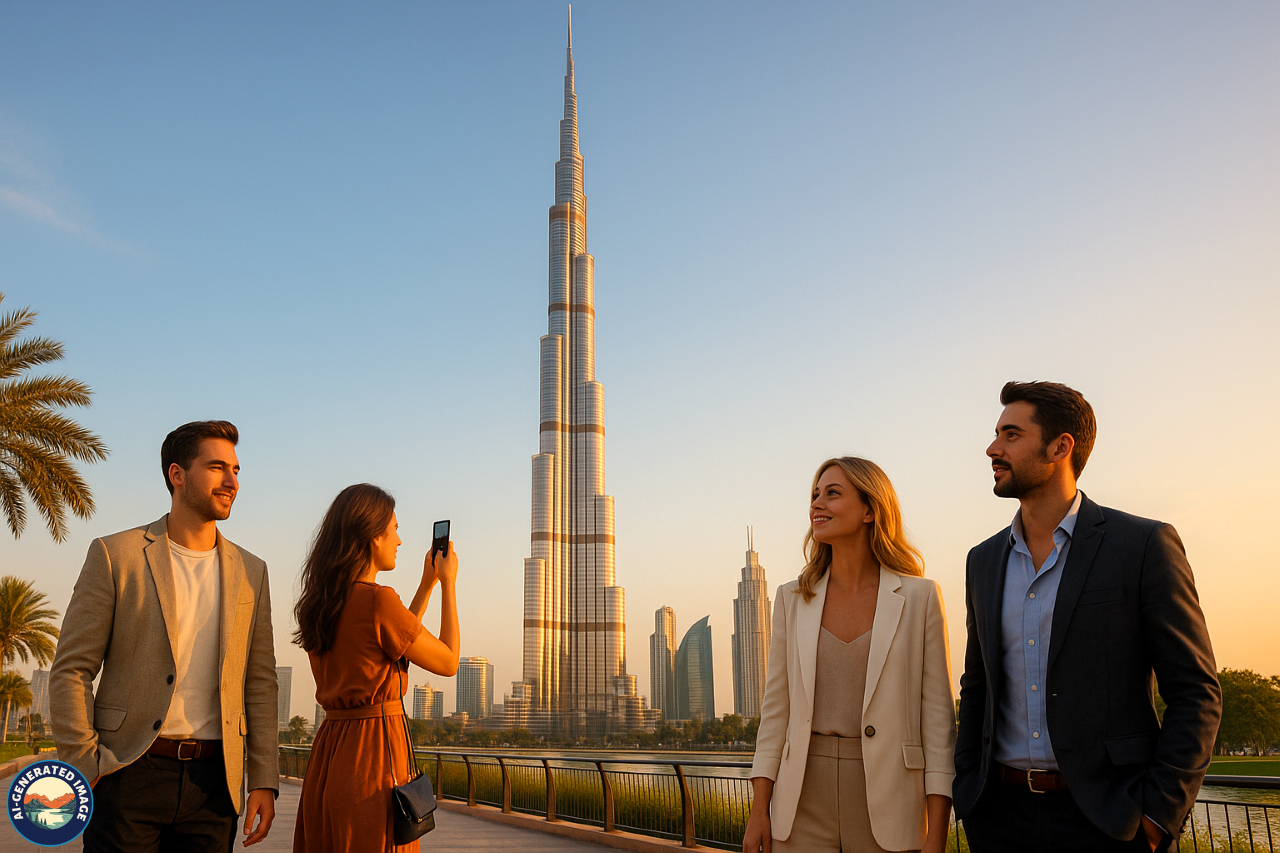
-
Palm Jumeirah:
-
An artificial island that resembles a palm tree, home to luxurious hotels and upscale residences.
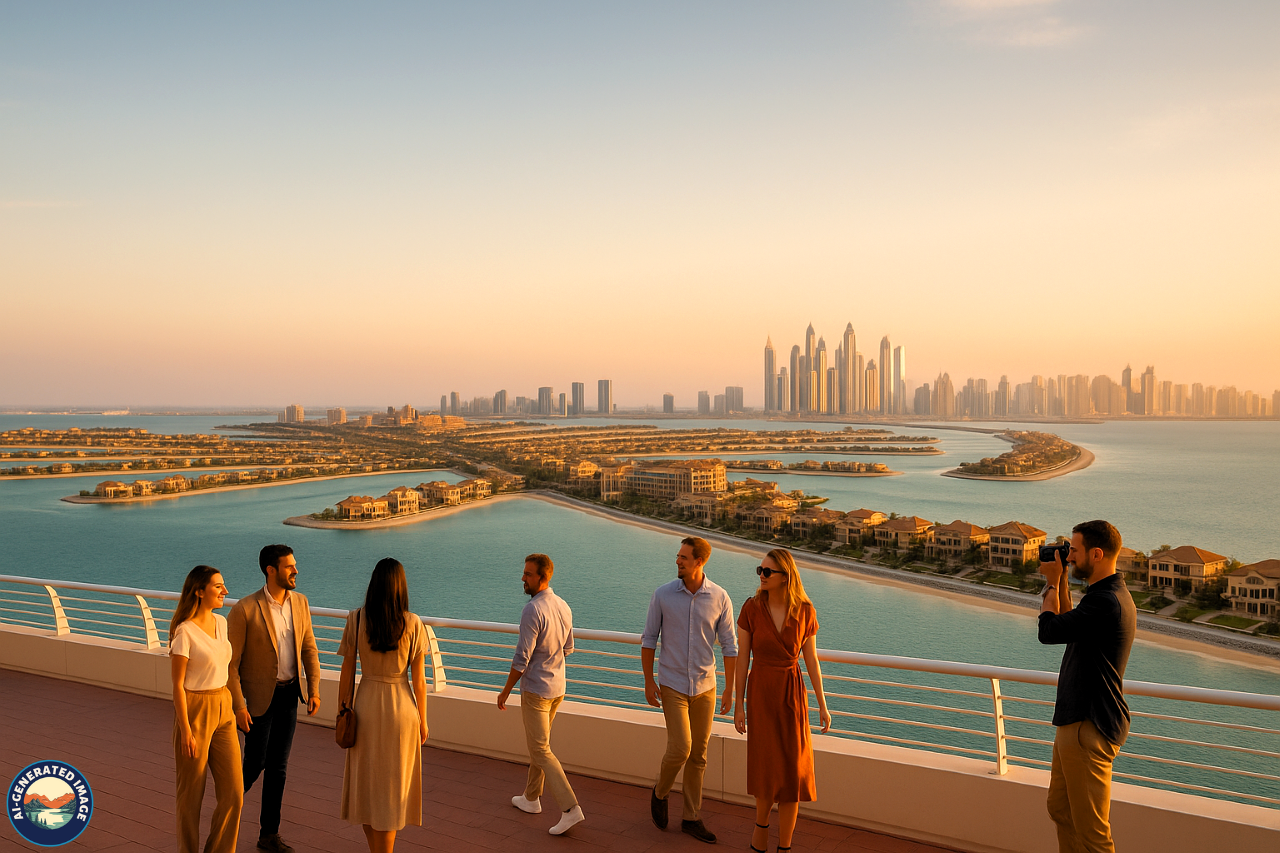
-
Burj Al Arab:
-
A distinctive sail-shaped hotel, often regarded as one of the most luxurious hotels in the world.
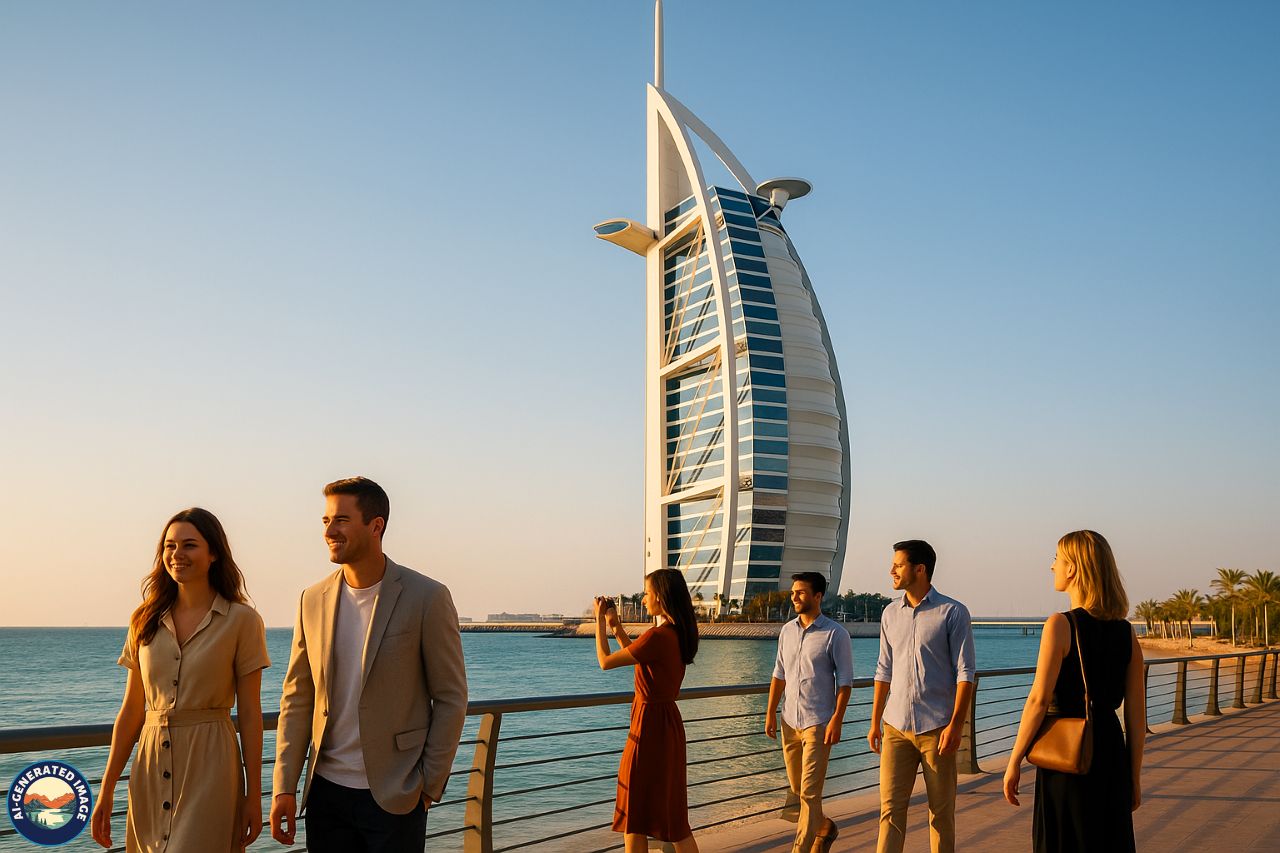
Dubai’s economy is diverse, supported by sectors such as tourism, trade, aviation, and finance. It is also a major business hub for multinational companies.
Sharjah
Sharjah is the cultural capital of the UAE, emphasizing the preservation of the region’s history and artistic heritage. The emirate is known for its museums, art galleries, and educational institutions, and it strives to maintain its traditional values while fostering cultural development.
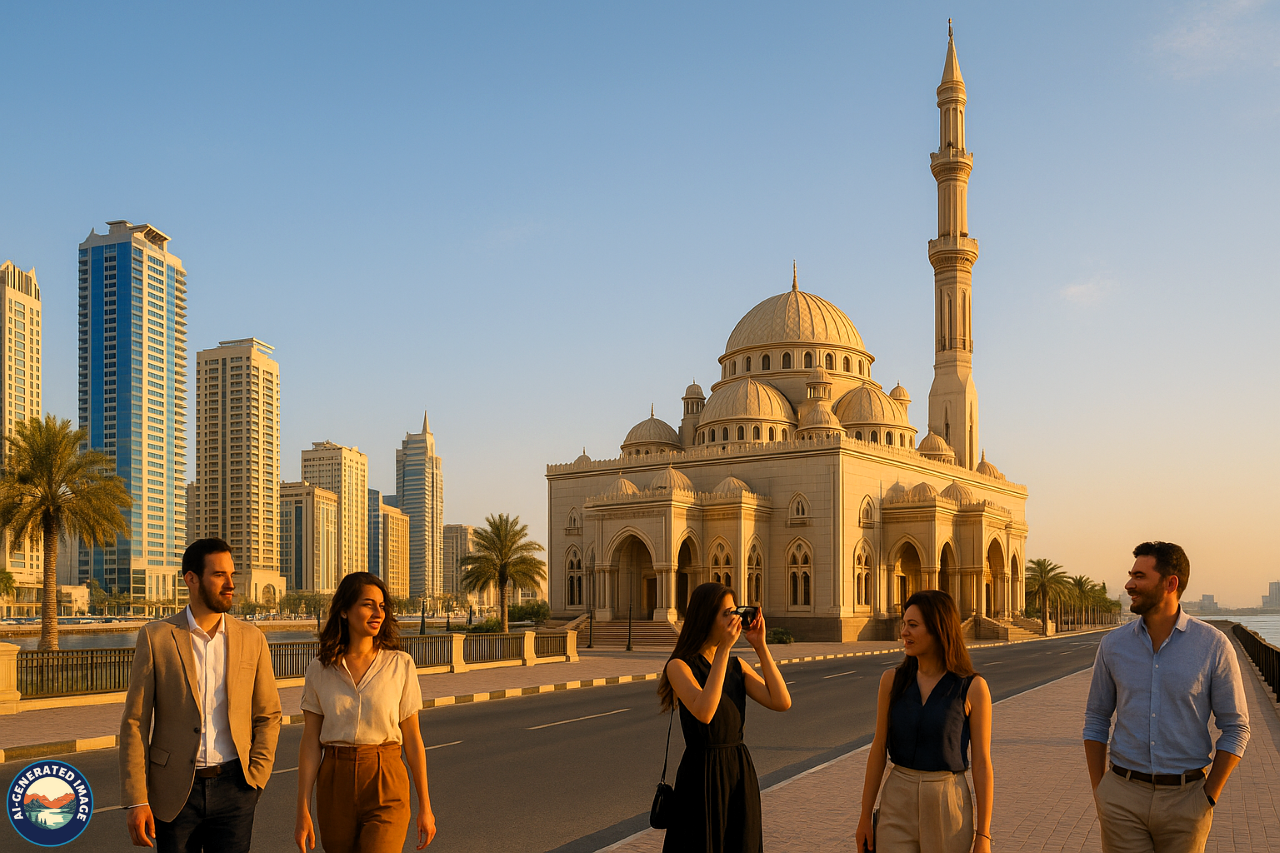
Key cultural sites in Sharjah include:
-
Sharjah Art Museum:
-
One of the largest art museums in the Middle East, housing an extensive collection of contemporary and modern art.
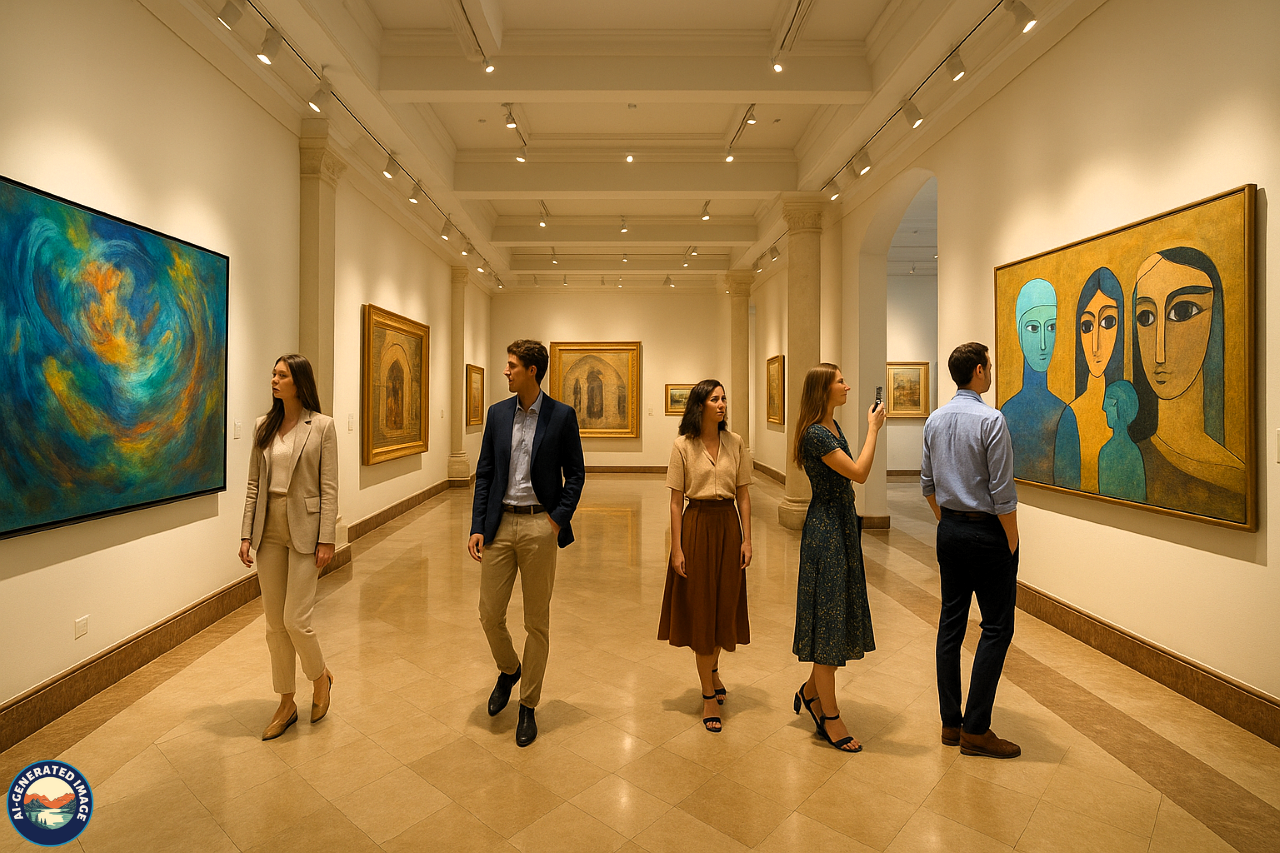
-
Al Noor Island:
-
A cultural oasis that features art installations, tranquil landscapes, and the stunning Al Noor Mosque.
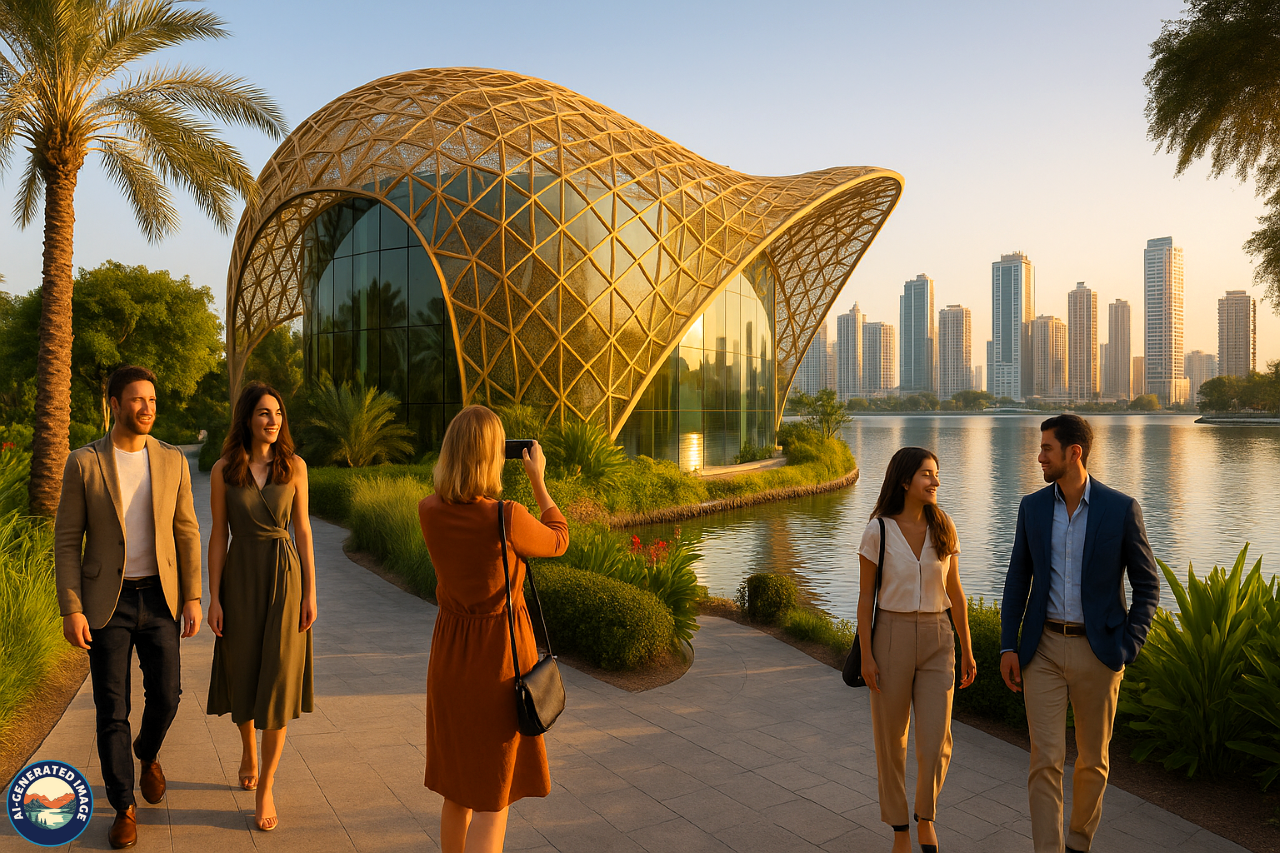
Sharjah is a more family-oriented destination compared to Dubai and Abu Dhabi, making it ideal for those interested in culture, history, and education.
Culture and Traditions of the UAE
Language and Religion
Arabic is the official language of the UAE, though English is widely spoken, especially in business and tourist areas. Islam is the dominant religion, and it plays a central role in shaping the customs, values, and laws of the country. The influence of Islam is evident in the daily life of the UAE’s citizens, from the five daily prayers to the observance of Ramadan, which is a month-long period of fasting and reflection.
Despite its strong Islamic identity, the UAE is recognized for its openness to other religions. In cities like Dubai and Abu Dhabi, visitors can find churches, temples, and mosques coexisting peacefully.
Culinary Traditions
The UAE’s cuisine is a delicious fusion of Middle Eastern, Persian, and South Asian flavors. The dishes are typically rich in spices and use a variety of meats, rice, and vegetables.
Popular Emirati dishes include:
-
Machboos:
-
A flavorful rice dish, often served with chicken or lamb, is cooked with aromatic spices.
-
Shawarma:
-
A popular street food made of seasoned meat wrapped in pita bread, topped with vegetables and sauces.
-
Hummus and Tabbouleh:
-
Staple appetizers enjoyed across the UAE.
These dishes reflect the cultural diversity of the UAE, influenced by the countries surrounding it and the international community residing within its borders.
Festivals and Celebrations
The UAE’s cultural and religious festivals are celebrated with much fanfare. The most prominent of these include:
-
Eid al-Fitr:
-
A joyous celebration marking the end of Ramadan, with prayers, feasts, and family gatherings.
-
Eid al-Adha:
-
A festival commemorating the sacrifice of Prophet Ibrahim, during which many Muslims give to charity and participate in animal sacrifices.
-
National Day:
-
Celebrated on December 2nd, this day commemorates the founding of the UAE and is marked by fireworks, parades, and patriotic displays.
In addition to these religious observances, the UAE hosts international events such as the Dubai Shopping Festival and the Abu Dhabi Film Festival, attracting visitors from around the globe.
The UAE as a Global Destination
Tourism and Landmarks
The UAE has rapidly become a global tourist hotspot. With its luxurious resorts, shopping malls, entertainment options, and cultural landmarks, it is a destination that caters to all types of travelers.
Top attractions include:
-
Dubai Mall:
-
The world’s largest shopping mall, offering everything from luxury boutiques to an indoor ice rink and a massive aquarium.
-
Desert Safari:
-
An exciting way to explore the vast desert landscapes, with activities such as dune bashing, camel rides, and a traditional Bedouin-style dinner.
-
Louvre Abu Dhabi:
-
A spectacular museum housing an impressive collection of art, artifacts, and exhibitions from around the world.
The UAE also offers a thriving nightlife scene, along with world-class dining experiences and vibrant entertainment options.
Business and Economy
The UAE has transformed into a major business hub, largely due to its strategic location, state-of-the-art infrastructure, and liberal economic policies. While oil continues to play a significant role, the country has diversified its economy, focusing on sectors such as tourism, real estate, finance, and technology.
Dubai’s free zones and world-class infrastructure have made it an attractive location for multinational companies, while Abu Dhabi’s investment in renewable energy and real estate development is pushing the emirate toward a post-oil future.
Innovation and Technology
The UAE is actively pursuing a future driven by technology and innovation. From creating smart cities like Dubai to investing in renewable energy, the country is setting ambitious goals for the coming decades.
Dubai’s Smart City initiatives aim to create a fully connected city, with solutions for traffic management, energy conservation, and healthcare services. The country is also exploring cutting-edge technologies, including artificial intelligence, robotics, and space exploration, positioning itself as a leader in innovation.
The UAE’s Global Influence
International Diplomacy and Trade
As a member of organizations such as the United Nations and the Gulf Cooperation Council (GCC), the UAE plays a vital role in global diplomacy. The country maintains strong relationships with global powers such as the United States, China, and the European Union, positioning itself as a regional leader in trade and diplomacy.
Humanitarian Contributions
Beyond economic and diplomatic influence, the UAE is also recognized for its humanitarian work. The UAE provides significant financial aid to countries affected by conflicts and natural disasters, offering assistance through organizations like UAE Aid and the Emirates Red Crescent.
Sustainability and the Future of the UAE
Environmental Initiatives
The UAE is committed to sustainability and environmental conservation. Projects like Masdar City, a sustainable urban development powered entirely by renewable energy, showcase the UAE’s commitment to green living.
Additionally, the country has invested in large-scale solar energy projects, with Dubai hosting the world’s largest solar park.
Vision 2021 and Beyond
UAE Vision 2021 outlines the country’s aspirations for a more diversified economy, improved infrastructure, and increased focus on sustainability. The government’s ongoing initiatives in innovation, education, and green energy are setting the stage for a prosperous future.
Travel Tips for Visiting the UAE
Best Time to Visit
The best time to visit the UAE is during the cooler months from November to April, when the weather is comfortable for outdoor activities.
Visa and Travel Information
Visitors to the UAE will need a visa, with many nationalities eligible for a visa on arrival or an eVisa. It’s essential to check the requirements based on your country of origin.
What to Pack
Pack lightweight clothing for the hot climate, but dress modestly in public spaces. Sunscreen, sunglasses, and a hat are also recommended.
Getting Around
The UAE boasts excellent public transportation, especially in Dubai, where the metro system is modern and efficient. Taxis and rental cars are also widely available for those looking to explore beyond the cities.
Conclusion
The United Arab Emirates is a country that blends ancient traditions with cutting-edge innovation. From the towering heights of the Burj Khalifa to the serene expanses of the desert, the UAE offers visitors a unique experience. With its thriving economy, rich culture, and forward-thinking vision, the UAE is a country that continues to impress and inspire on the global stage.
FAQs
-
What are the seven emirates of the UAE?
-
The seven emirates are Abu Dhabi, Dubai, Sharjah, Ajman, Fujairah, Ras Al Khaimah, and Umm Al-Quwain.
-
-
What is the best time to visit the UAE?
-
The best time to visit is from November to April when the weather is milder.
-
-
Do I need a visa to visit the UAE?
-
Most visitors will require a visa, though some nationalities can apply for a visa on arrival or use an eVisa.
-
-
What currency is used in the UAE?
-
The official currency is the UAE Dirham (AED).
-
-
Is the UAE safe for tourists?
-
Yes, the UAE is considered one of the safest travel destinations.
-
-
Can tourists drink alcohol in the UAE?
-
Alcohol is available in licensed venues such as hotels, restaurants, and bars, but public drunkenness is prohibited.
-
-
What are the top attractions in the UAE?
-
Notable attractions include the Burj Khalifa, the Palm Jumeirah, the Louvre Abu Dhabi, and the desert safari experience.
-

